As Hip Hop culture expands into new arenas there will always be tensions as established institutions mold parts of the culture to fit into practices ideologies that have long existed and work for them which may be in sharp contrast to the practices and ideology of its practitioners. To the chagrin of those who feel closer to the culture they see Hip Hop being compromised and diluted. Others see it as par for the course. Hip Hop is like any other tool. It reflects mores and mindset of the people who use it.
This essay below was featured on the website Rise Up Hip Hop Nation where guest blogger Dr Travis Gosa of Cornell University raises an important issue about Hip Hop and education..Is it a hustle or something that is breaking new ground and causing tensions among those who feel left behind?
-Davey D-
Is Hip-Hop Education A Hustle? Getting Serious About Rap Pedagogy
Written by Dr. Travis Gosa
Sorry for the hate, but I feel obligated to ether Mr. Duey, the rapping math teacher who’s been “putting some flow to STEM subjects.” At the end of August, the white middle-school-teacher-slash-rapper-slash-party-entertainer (I can’t knock the hustle) dropped his second educational rap CD entitled “Class Dis-Missed 2.”The tracklist features 18 educational rap songs including “Big Ballin’ Planets” (an astronomy tune) and “Dewey Decimal System” (reppin’ library science ya’ll).
My beef is not with Mr. Duey’s flow on “Plate Tectonics” or “Long Division.” In fact, I would compare Mr. Duey’s lyrical ability to be similar to that of Mase, Silk da Shocker, or Sudanese-Australian rapper Bangs (“Take U To Da Movies”). Mr. Duey is no Rakim, and I’ve heard worse.
No, I’m ridin’ on Mr. Duey for doing what has become popular of late: the complete bastardization and misappropriation of hip-hop education for profit. Too often, what is packaged as “hip-hop education” and “rap pedagogy” is nothing more than what Greg Tate calls “the marriage of heaven and hell, of New World African ingenuity and that trick of the devil known as global hyper-capitalism.”
continue reading this column at Rise Up Hip Hop Nation
While reading this column I was reminded of a speech KRS-One gave a few years ago about education and the many flaws we find within the system.. I thought I’d post up this speech to add to the discussion.. You can peep this excellent speech HERE.
-Davey D-





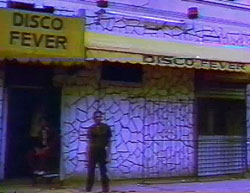


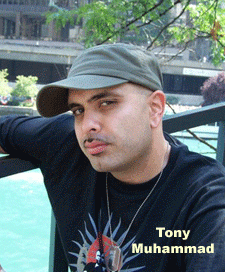
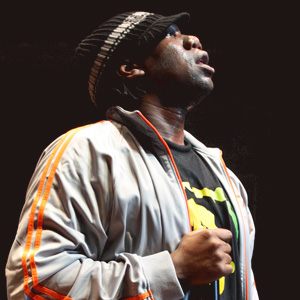

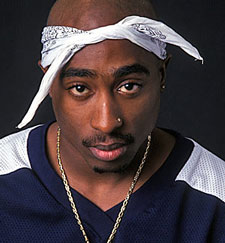
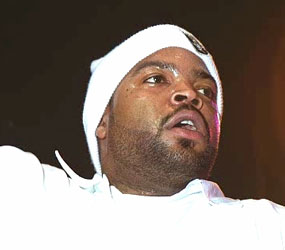
 To support the exclusion of Gangsta rap from a hip hop museum is like the act of excluding the mention of African Americans in the development process of America. His erroneous
To support the exclusion of Gangsta rap from a hip hop museum is like the act of excluding the mention of African Americans in the development process of America. His erroneous  Marcus Mosiah Garvey, the founder and leader of the Universal Negro Improvement Association (UNIA) in the early 20th century, was deemed controversial for arguing that peoples of African descent are in fact one people because they share a common racial condition and history.
Marcus Mosiah Garvey, the founder and leader of the Universal Negro Improvement Association (UNIA) in the early 20th century, was deemed controversial for arguing that peoples of African descent are in fact one people because they share a common racial condition and history. Those who do not take KRS-One seriously in these endeavors typically just view him as an artist.
Those who do not take KRS-One seriously in these endeavors typically just view him as an artist.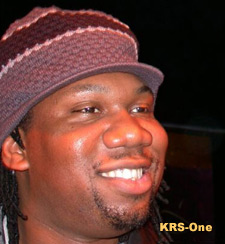 PEACE AND MUCH LOVE TO ALL GENERATIONS OF HIP HOP KULTURE! We are truly a blessed nation! In these times of war, mass unemployment and social unrest let US become the changes that we would like to see in the world. We are an international culture of new people on the earth. So let US be the civilization that we expect others to be. Together (as a Hip Hop Nation) we truly have a great opportunity to establish peace, love, unity and safely having fun with our Hip Hop activity in the world. And NOT with our “hip-hop” activities in the world, but with our collective unified “Hip Hop” activity in the world we have an opportunity to establish a “True World Order”.
PEACE AND MUCH LOVE TO ALL GENERATIONS OF HIP HOP KULTURE! We are truly a blessed nation! In these times of war, mass unemployment and social unrest let US become the changes that we would like to see in the world. We are an international culture of new people on the earth. So let US be the civilization that we expect others to be. Together (as a Hip Hop Nation) we truly have a great opportunity to establish peace, love, unity and safely having fun with our Hip Hop activity in the world. And NOT with our “hip-hop” activities in the world, but with our collective unified “Hip Hop” activity in the world we have an opportunity to establish a “True World Order”. We can talk all day about revolution and “what we gotta do” but if WE are not willing to exalt to sainthood those who lay down their lives for OUR freedom and comfort then we are truly lost! When are WE going to honor OUR own “lords” and “saviors?” Is this not the beginning of any effective revolution? Why put your faith in the sacrifices of foreign messiahs, saints and saviors when your own father has given HIS life for the advancement of YOUR well-being TODAY? Dr. Martin Luther King Jr. IS THE CHRIST! He is the “savior” of all who believe in him and his words. And as Hiphoppas, we must pay very close attention to the instructions of OUR savior if we are to grow and develop as a truly righteous nation ourselves.
We can talk all day about revolution and “what we gotta do” but if WE are not willing to exalt to sainthood those who lay down their lives for OUR freedom and comfort then we are truly lost! When are WE going to honor OUR own “lords” and “saviors?” Is this not the beginning of any effective revolution? Why put your faith in the sacrifices of foreign messiahs, saints and saviors when your own father has given HIS life for the advancement of YOUR well-being TODAY? Dr. Martin Luther King Jr. IS THE CHRIST! He is the “savior” of all who believe in him and his words. And as Hiphoppas, we must pay very close attention to the instructions of OUR savior if we are to grow and develop as a truly righteous nation ourselves. As a result, “The Dream” of Dr. King fell upon the ground and both Blacks and Whites trampled over it! Even those of his own “Southern Christian Leadership Conference” sought after the success of their own careers rather than continue the realization of “The Dream”. And let me say right here, that I am not be overly critical of anyone’s efforts. But after Dr. Martin Luther King Jr.’s death it seems that everything went back to the way it was. People from Dr. king’s own camp seem to have forgotten the “Dream”. Proof of this is the simple fact that many Americans especially Black Americans don’t even know who Dr. King is or what he was really all about. Is this the fault of “the White Man” or is this the fault Dr. King’s own Black People?
As a result, “The Dream” of Dr. King fell upon the ground and both Blacks and Whites trampled over it! Even those of his own “Southern Christian Leadership Conference” sought after the success of their own careers rather than continue the realization of “The Dream”. And let me say right here, that I am not be overly critical of anyone’s efforts. But after Dr. Martin Luther King Jr.’s death it seems that everything went back to the way it was. People from Dr. king’s own camp seem to have forgotten the “Dream”. Proof of this is the simple fact that many Americans especially Black Americans don’t even know who Dr. King is or what he was really all about. Is this the fault of “the White Man” or is this the fault Dr. King’s own Black People? The smell of cigarette smoke and sweat spilled over into our cell block. From a distance, the sounds of young men shouting at each other and tussling and laughing filled the atmosphere with a certain sense of restlessness. Donald Williams wiped his forehead with the back of his hand then stared down at the tattered pages of an old Bible.
The smell of cigarette smoke and sweat spilled over into our cell block. From a distance, the sounds of young men shouting at each other and tussling and laughing filled the atmosphere with a certain sense of restlessness. Donald Williams wiped his forehead with the back of his hand then stared down at the tattered pages of an old Bible.
 Still, Hip-Hop grew; new artists contributed new things. Biz Markie and Slick Rick made kids laugh, and Ice-T explained the gangster’s plight with tracks like “Colors.” Hip-Hop expanded into new territory, and even newer, fresher voices filled the airwaves. Two heartbeats later, a group named N.W.A. stole away the imagination of fans by introducing a raw, no-holds-barred form of expression that graphically detailed the lives of gangsters. White kids in Alabama started screaming “F— Tha Police,” and politicians all over America began targeting Hip-Hop as a scapegoat for social woes. Most black leaders remained quiet during this onslaught, leaving their Hip-Hop children to be sacrificed by an angry white political lynch mob.
Still, Hip-Hop grew; new artists contributed new things. Biz Markie and Slick Rick made kids laugh, and Ice-T explained the gangster’s plight with tracks like “Colors.” Hip-Hop expanded into new territory, and even newer, fresher voices filled the airwaves. Two heartbeats later, a group named N.W.A. stole away the imagination of fans by introducing a raw, no-holds-barred form of expression that graphically detailed the lives of gangsters. White kids in Alabama started screaming “F— Tha Police,” and politicians all over America began targeting Hip-Hop as a scapegoat for social woes. Most black leaders remained quiet during this onslaught, leaving their Hip-Hop children to be sacrificed by an angry white political lynch mob.
An Open Letter to the NY Daily News About KRS-One
My name is Tony Muhammad, President and founder of Urban America Enterprises, Inc. and publisher of Urban America Newspaper, the first ever urban community newspaper, based in South Florida. I am responding to the inflammatory commentary made about one of the most respected teachers and leaders in Hip-Hop, KRS-ONE. The commentary appeared very recently in The New York Daily News in an article entitled KRS-One, decency zero. The article itself pertained to statements made by KRS-ONE at a recent panel lecture concerning the Hip-Hop community’s response to the 9-11 terror attacks. After careful analysis of both the article published in The New York Daily News and KRS-ONE’s response, which is currently being circulated on several sites on the internet, I can very much say that your brand of journalism is not only irresponsible, but it is “choppy” and insulting both to KRS-ONE and the Hip-Hop community. According to your biography, Mr. Rush, you have a Masters degree in Journalism from Columbia University and have been published in various magazines as well as publishing a book yourself. Tell me, how this can be true? As an experienced educator I can safely say that I have seen greater detail in 3rd grade level essays about “favorite things to do” than in your “high status” New York Daily News article about what KRS-ONE supposedly said.
His statements, I admit, would be considered “controversial” to people such as yourselves, considering your backgrounds. However, just because you did not fully understand what he said, does that give you a right to twist his words around according to your own paranoid view of reality (a syndrome from which a large percentage of Americans today suffer from thanks to the Bush Administration’s terror alert campaigns)?
If you considered KRS-ONE’s statements so shocking or feel that you may have misinterpreted something he said, why did you not take the opportunity to ask a question to receive more clarity? Even if you did not have the opportunity to ask questions, perhaps you would have done better justice by printing more fully what the man actually said. To automatically and “officially” declare “his solidarity with Al Qaeda,” the group linked with the murder of over two thousand people is repulsively sick. You are speaking of a man who has organized with his Temple of Hiphop annual days of mourning to the victims of the 9-11 terror attacks. Not only this, since 1987, I have religiously heard the man’s music, which has frequently contained lyrics emphasizing “world peace.” KRS-ONE’s statement about how “Hiphoppas” (not merely African-Americans as you put it) cheered and said “justice” when they saw the World Trade Center being attacked is indeed scary but it is very much a real view that much of today’s youth hold. Trust me. It is no coincidence that soon after this horrible act was broadcasted on television, many of my own students at the time were theorizing that the Bush Administration was responsible (Not that I believe or disbelieve this myself, but, in effect, posing the question as to why they would automatically think this way).
Why do you believe there was so much support for Jadakiss’ controversial song Why? (this song itself includes a question pertaining to why Bush blew up the towers – a song aired uncensored and highly requested on New York FM radio). Many of our inner-city youth may not know how to express themselves fully on such topics as the 9-11 terror attacks, largely due to their own lack of study. Yet and still, they are harassed enough by police to identify a common threat. Yet and still, they are annoyingly tested like genie pigs in the public schools enough to identify a common threat. This is not to mention that anger on the part of the poor world wide has built up immensely thanks to the World Trade Organization. In America we are constantly losing jobs which are being transported overseas. The result? The decrease of legal inner-city economies has led to the rise of illegal economies, which many youths participate in. The high neglect of such communities in America has left them in conditions similar to those of 3rd World Countries. In Third World Countries, as I am sure you are aware, youth are employed in factories owned by the same companies that left the inner-cities of America, where they produced products such as Nike shoes; laboring for, in some cases, two cents a day. The Hip-Hop youth of America, in turn, purchase such products twenty to thirty times more than what they are actually worth. This is partially why KRS-ONE identifies such corporate entities as “oppressors” – as you are so quick to mention.
Do you not understand now why such anger would exist in the hearts and minds of the youth? Perhaps you need to live the experience of a youth that embraces Hip-Hop culture to fully understand what I am saying. Especially ask those who grew up embracing Hip-Hop culture during the crack filled 80s what their views regarding the government were (and most likely still are). It has only been recently that we have been targeted by more “liberal” factions of U.S. politics to, for the first time, vote in a presidential election just as the Kennedy Administration targeted highly neglected African-Americans to vote for the first time (in a long time) in the 1960s. Your slanderous and abominable statements about KRS-ONE sharply resemble the way the media has historically repeatedly lashed out against African-American leaders, such as Malcolm X and countless others, who have spoken on what have been considered unexplored realities to white America.
As a note, I am certain that the anger among the Hip-Hop youth is destined to get worse once they realize fully how they are being targeted to be sent and slaughtered in a war that most do not agree with. Just take a look at where the armed forces is advertising: on BET during Rap City, in The Source and XXL Magazines; presenting the armed forces as being a party-filled experience where all the guys are rich and all drive wrapped Hummers (you know, the kind that recruiters drive up to inner-city schools in with the intent to attract attention). I don’t see such targeting towards white non-Hip-Hop youth on any form of television programming or print media. If you are to expose any scandals (or how your column puts it “gossip”) why don’t you investigate things along the lines of this matter? I am sure the experience will be like opening a Pandora’s box.
In respects to the mention of this country “must commit suicide if the world is to be a better place,” KRS-ONE was in a philosophical sense saying that the negative or “corrupt” characteristics of the United States, both in its foreign and domestic policies, must end. Taking chopped up “tidbits” of what KRS-ONE had to say and twisting them to make it seem as if he is the epitome of evil have me question your motives which may be regarded as “evil” in and of themselves. You alluding that KRS-ONE is opposed to voting is flawed. At his concerts he emphasizes the familiar phrase “Voting is the least you can do” to show and prove the type of power the Hip-Hop community has. You quoting him in saying “Voting in a corrupt society adds more corruption” must obviously be expressed in a totally wrong context.
One final note, just because KRS-ONE is not currently signed to what would be regarded a “major record label,” it absolutely does not mean that his music career is in a “downward-spiraling” motion as you put it. In fact, he has expressed much joy in being free from any corporate entities pinning him down to a recording contract. Anywhere in this country, from what I have experienced and know, he still packs concerts – mainly filled with Hip-Hop youth who are eager to know the truth as he expresses it. His career as a leader and teacher to the Hip-Hop nation is not over. It has just begun. It is not his career that is “bent on self-destruction,” as you put it, but our very lives as Americans if we do not take the time to listen to others with alternative perspectives of reality who seek nothing less than for humanity to be steered on the right path. In fact, for all readers on the internet who have the opportunity to read this and maintain an “open mind” may they “KEEP RIGHT!” I hope that you take this message as serious as many politicians have taken the Hip-Hop community serious in this up-coming election.
If you seek clarification on any of the matters presented above, you may contact me at 305-472-2566 or via e-mail at urbanamericainfo@yahoo.com. Trust me. I have much more on my mind to express on this matter and I can share it with you if you so request it. I pray that this message reaches you in the best of health, both physically and mentally to inspire drastic change in your way of thinking. I urge you to repair the damage by publicly apologizing to KRS-ONE and the Hip-Hop community.
Sincerely,
Tony Muhammad
Urban America Enterprises, Inc.